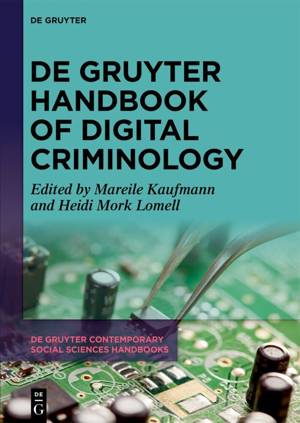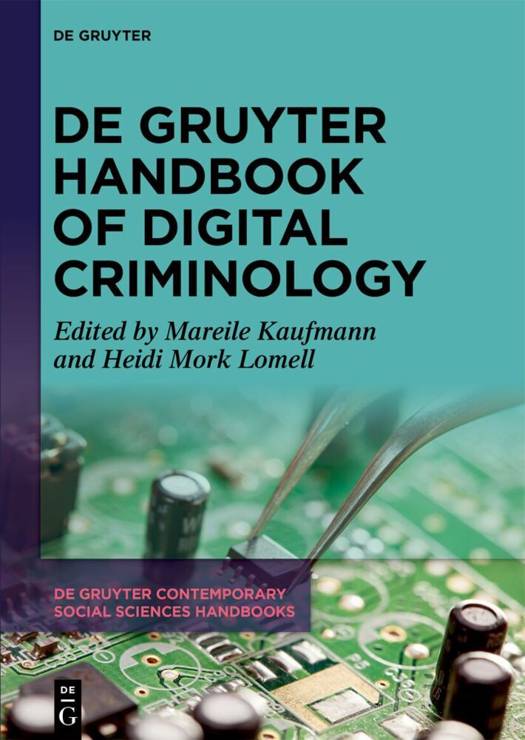
- Afhalen na 1 uur in een winkel met voorraad
- Gratis thuislevering in België vanaf € 30
- Ruim aanbod met 7 miljoen producten
- Afhalen na 1 uur in een winkel met voorraad
- Gratis thuislevering in België vanaf € 30
- Ruim aanbod met 7 miljoen producten
de Gruyter Handbook of Digital Criminology
Omschrijving
The De Gruyter Handbook of Digital Criminology examines how digital devices spread and cut across all fields of crime and control. Providing a glossary of key theoretical, methodological and criminological concepts, the book defines and further establishes a vibrant and rapidly developing field. At the same time, Digital Criminology is not only presented as a novelty, but also as a continuation of the discipline's history.
Each chapter can be read as a free-standing contribution or texts can be combined to gain a more holistic understanding of Digital Criminology or to design a research project. Expert contributions vary from Criminology, Sociology, Law, Science and Technology Studies, to Information Science and Digital Humanities. Together, these supply readers with rich and original perspectives on the digitization of crime and control.
Specificaties
Betrokkenen
- Uitgeverij:
Inhoud
- Aantal bladzijden:
- 500
- Taal:
- Engels
- Reeks:
- Reeksnummer:
- nr. 6
Eigenschappen
- Productcode (EAN):
- 9783111061931
- Verschijningsdatum:
- 31/03/2025
- Uitvoering:
- Hardcover
- Formaat:
- Genaaid
- Afmetingen:
- 170 mm x 240 mm

Alleen bij Standaard Boekhandel
Beoordelingen
We publiceren alleen reviews die voldoen aan de voorwaarden voor reviews. Bekijk onze voorwaarden voor reviews.










